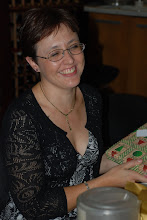Most countries develop their own unique subset of idioms and idiosyncrasies in the spoken word. Think “ja nee” or “just now” or “robots.” South Africans would understand exactly what I just wrote, but others would be rather confused.
The UAE has also developed its own version of the English language. Known to some as “Dinglish” or ”Dublish” (Dubai English), it contains words from Arabic, Urdu and Hindi amongst others.
By far the most popular adopted word is the Arabic word “khallas.” Pronounced with the same guttural “g” sound that Afrikaans uses (as in ghallas), it means “finished.” You hear parents telling their kids “Khallas!” when there are no more sweets, or when they have had enough of their nonsense. It also means a deal has been closed. It peppers conversations everywhere.
Another favourite with expats is the Arabic phrase “mafi mushkila” which means “no problem.” I like this one!
I hear what sounds like “schway schway” on a regular basis from all different cultures, but I have yet to figure out exactly what it is. I get the feeling from the context that it might be “hurry up” or “quickly.”
Then there are the English phrases that have taken on a slightly different meaning.
If someone is away from his desk for example, you will likely be told “he is not on his seat.”
And then there is the phrase “same same” which simply means that two things are, well, the same. For example, my children are same same. Which means I have two girls. When they were measuring for our curtains, we wanted same same throughout the lounge. You get the picture?
I’ve mentioned before the business about things happening inshallah (if/when Allah wills it). There are some variations. If a person says “today itself” they mean it will actually happen today rather than “today inshallah” which could mean anytime between now and next week. You could be more specific and say “today afternoon” or “today morning” if you prefer.
One of the classics which I have come to love is “backside.” Initially I didn’t quite know why people commented on it. It does not mean your bum. It does not mean your back. It is used in reference to giving directions.
I had to try very hard not to laugh the first time I had it said to me. I phoned to get directions to a hair salon, and when the receptionist told me it was at the backside of the hotel, I nearly fell off my chair.
Buildings have backsides you see. Not “back entrances” or “rear entrances.” They have backsides. And that’s the way the say it – backside. Not back SPACE side. Backside.
One of the phrases that can inadvertently cause offence is the question “What is your good name, sir?” For people unfamiliar with the phrase, it can cause them to stop and wonder whether they have a bad name too. It simply means that the person is requesting your name.
And you are most likely to be called “Mr John” as opposed to “Mr Smith.” Your name is of importance here, and your surname merely an indicator of your family name (sometimes known as the fathers name). And the term “Mr” is a mark of respect. If you don’t know someone, or aren’t invited to call them directly by their first name, stick the Mr in front. Or in the case of a lady, Miss.
Women do not carry their husband’s names after marriage. They keep their fathers name. For example, a man would be Mr Ali Bin Khalifa Al Mansoor. He would be known as Mr Ali. “Bin” means “son of” and “Khalifa Al Mansoor” is his father. For woman, it would be Miss Fatma Bint Khalifa Al Mansoor, “Bint” meaning “daughter of.” If I were a UAE national, my name would be Ms Mandy Bint Thomas Snashall.
It took me a while to getting used to being called Miss Mandy and to hear my husband called Mr Colin. It was especially funny when our furniture was delivered, and the English got mangled. The delivery note was very clearly made out to Mr Colon.
Mafi mushkila. Desert Notes is khallas for this week. I’m off to meet Mr Colon at the backside of the villa.
Subscribe to:
Post Comments (Atom)

No comments:
Post a Comment